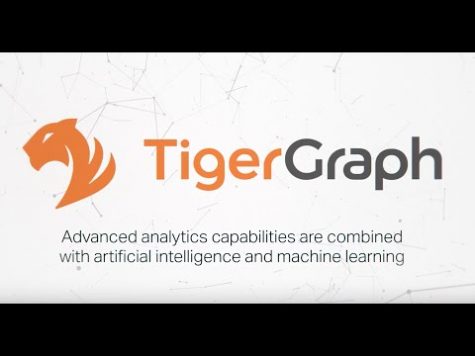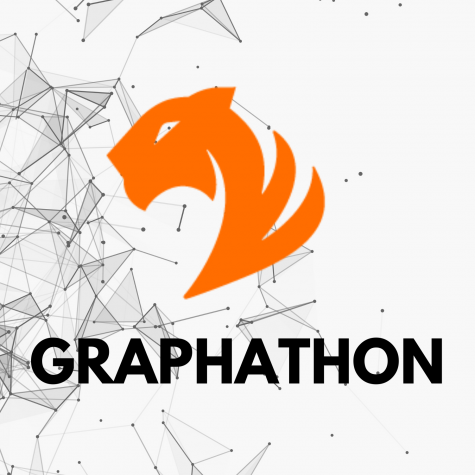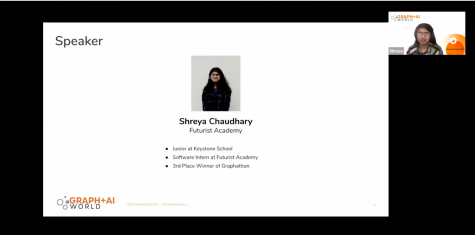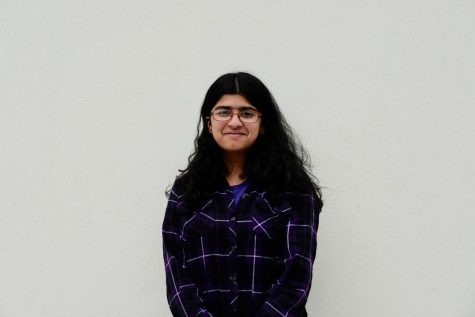My Story: How I Got a Job at a Silicon Valley Startup
Recently, I’ve had a pretty unique opportunity: I, a junior in high school, had to mentor a college student. That surprised me: she was roughly four years older than me; was wisdom could I possibly offer her? At first, I was expecting to ramble about how to use some software. However, instead, she asked me to talk about my experience getting the job. In retrospect, it is pretty awesome that I got the opportunity. While explaining it out to her, I narrowed what got me to the place where I was to four factors: blogging, competing, connections, and luck.
 My experience with internships mainly stemmed from the competitions I’ve won. Through hackathons, I got the opportunity to reject internship offers—that I find pretty insane. Eventually, however, I decided to settle for an unpaid internship with Futurist Academy. The main factor that attracted me to this opportunity was that my work eventually was to be pitched to the CDC and WHO. Those connections were something I couldn’t turn down; my work could only take me so far; connections would eventually make or break me.
My experience with internships mainly stemmed from the competitions I’ve won. Through hackathons, I got the opportunity to reject internship offers—that I find pretty insane. Eventually, however, I decided to settle for an unpaid internship with Futurist Academy. The main factor that attracted me to this opportunity was that my work eventually was to be pitched to the CDC and WHO. Those connections were something I couldn’t turn down; my work could only take me so far; connections would eventually make or break me.
The main lead of Futurist Academy was Jon Herke. He also just so happened to be the Evangelist of TigerGraph, my first interaction with the company. Having him in my network was likely the first step to getting a job: not only did he introduce me to many industry professionals from companies such as Optum, Facebook, and Intel, but he also taught me how to market myself professionally.
While in Futurist, I constantly wrote blogs about what I knew. As Jon told me, “If your grandmother doesn’t know it, write about it!” One of the blogs I wrote was right after I finished my TigerGraph certification exam. This was the first blog from Futurist that got over one thousand likes (also known as claps in Medium). That was my first step that got my name in TigerGraph’s company. I got featured on their website and a LinkedIn shoutout. People who I never met started knowing my name. I was the high school student who wrote a blog that had one of the biggest reaches.
 Next, a few months later, I competed in one of their competitions called Graphaton with a library I developed called TigerGraph.js. I was the youngest winner, placing in third place overall. Along with the prize money, I got the awesome opportunity to speak at the Graph + AI World conference, an international conference about graph technology and artificial intelligence. My section was about using TigerGraph.js to create full-stack applications and a basic chat bot. It was then that I was offered the job. After ironing out some complications, I finally got my contract and started to work as a Developer Advocate Intern.
Next, a few months later, I competed in one of their competitions called Graphaton with a library I developed called TigerGraph.js. I was the youngest winner, placing in third place overall. Along with the prize money, I got the awesome opportunity to speak at the Graph + AI World conference, an international conference about graph technology and artificial intelligence. My section was about using TigerGraph.js to create full-stack applications and a basic chat bot. It was then that I was offered the job. After ironing out some complications, I finally got my contract and started to work as a Developer Advocate Intern.
Looking back, what ultimately got me the job was my connections and capturing value. By extracting value from everything I learned, I created content to prove to my employer that I knew what I was doing. Winning the Graphathon was like the icing on the cake: I was able to beat the other college students and industry professionals, landing myself a spot in the top three. Making the right connections increased my reach and got me the job.
 I recently watched this video from Domics about resumes. There, he explained how hard he searched to find a job, but he constantly got turned down, only to finally get a job from one of his family friends. That goes along with LinkedIn’s motto: “It’s not what you know; it’s who you know.” The video explained how an employer is less inclined to hire someone they don’t know because, well, all they know about the person is from the resume. Furthermore, if you say you know how to program in React, how can a boss tell (apart from the programming tests)? If you say you can program in React and you have published several blogs on it, your prospective employer knows that you know what you’re doing.
I recently watched this video from Domics about resumes. There, he explained how hard he searched to find a job, but he constantly got turned down, only to finally get a job from one of his family friends. That goes along with LinkedIn’s motto: “It’s not what you know; it’s who you know.” The video explained how an employer is less inclined to hire someone they don’t know because, well, all they know about the person is from the resume. Furthermore, if you say you know how to program in React, how can a boss tell (apart from the programming tests)? If you say you can program in React and you have published several blogs on it, your prospective employer knows that you know what you’re doing.
Therefore, overall, no matter what you do, I think it’s always important to share what you know and make connections. The more value you extract from the activities you’re doing can help you in the long run. Personally, I think everyone is a fantastic human being; landing a job, networking, and life is just a matter of showing the world how incredible you truly are.

Shreya Chaudhary is a senior planning to major in data science or computer science. She interns with TigerGraph, promotes and tutors women in STEM through...


Ali Wu • Feb 12, 2021 at 5:04 pm
you are amazing!